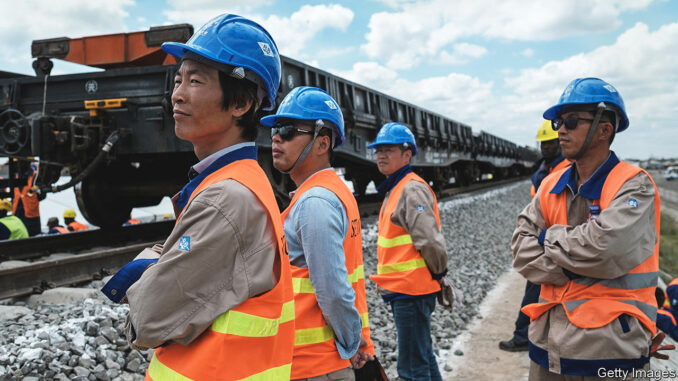
As China and Russia are bolstering their presence in Africa to tap its rich natural resources, experts have decried environmental impact of their projects and UN agencies have repeatedly warned the world’s poorest countries in the continent to avoid accumulating even more crippling debts.
At a UN-sponsored summit in Doha, Qatar, of the Least Developed Countries on 5-9 March, leaders condemned the treatment of their nations by the wealthy nations. After Western countries reduced their infrastructure financing in Africa, it created a void that China and Russia stepped in to fill.
“One out of every three major infrastructure projects in Africa is built by Chinese state-owned enterprises, and one out of every five is financed by a Chinese policy bank,” said Paul Nantulya of the US-based Africa Centre for Strategic Studies. “Russia, a key arms exporter to Africa, is also making forays into the continent through mining projects granted to the Wagner private paramilitary group,” he said.
But Chinese and Russian infrastructure projects “mostly (amount) to a debt trap,” warned Anna Borshchevskaya of the Washington Institute think tank. “China offers African countries loans for expensive infrastructure projects, which typically fail. And when the countries can’t pay the loans, China then takes control of their strategic assets,” she said. But China rejects practicing “debt-trap diplomacy” as an unfair criticism from Western rivals who have themselves burdened nations with huge debts. Projects led by China in Africa include the $5 billion Standard Gauge Railway project linking the Kenyan port city of Mombasa to the Rift Valley and another railway project in Tanzania that comes at the cost of $2.2 billion.
“Some China-funded projects have been profitable and sustainable, but the real benefit is to Beijing, with maintenance contracts that can run up to 99 years,” said Nantulya.
